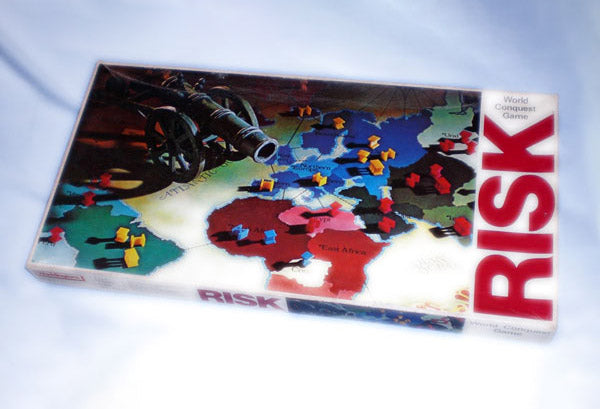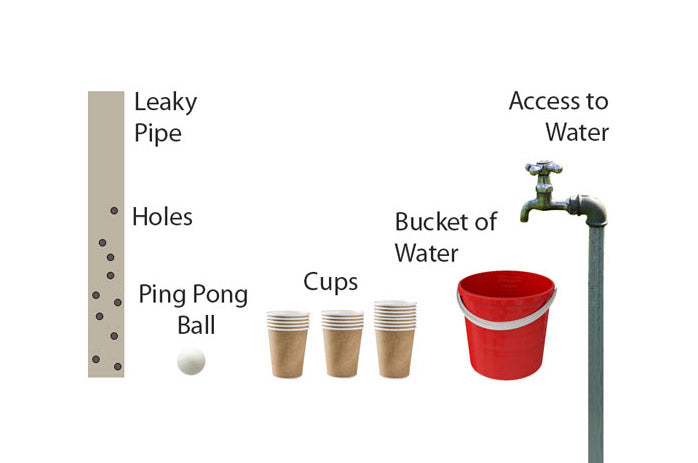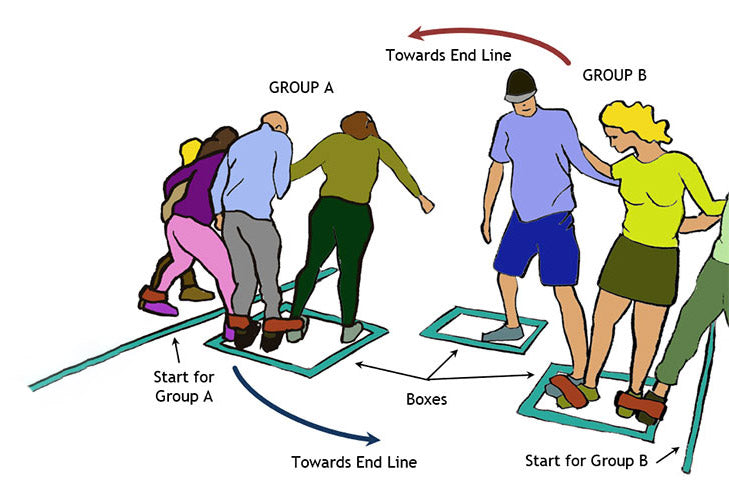Purpose
This is a fairly flexible team building activity that you can use to improve delegates’ creativity, decision making and team working skills. Effectively you get the groups to design a game in the given time and later evaluate the process they went through. You can use a number of variations to customise this training exercise based on your needs.
Objective
Design a game using the supplied materials with the objective of making it as entertaining as you can.
What You Need
- Scissors
- Several dice. You can supply standard 6 sided dice or even supply other types.
- Playing cards
- Playing money
- Papers, paper cards, large sheets
- Poker tokens
- Colour pens
- Strings
- Anything else you like to add such as newspapers, magazines, building bricks, plastic shapes, tokens, etc.
Setup
- Divide the delegates to groups of no more than 5 people so that you end up with an even number of groups.
- Explain that the objective of this exercise is to design a game
- Supply the materials so that everyone can access them. A good way to do this is to place them all on a separate table so groups can pick what they want as necessary and go back to their own group table while working on their designs.
- Groups members must work together to use the materials provided to create an entertaining game which can be played with up to 5 people in about 30 minutes.
- Allocate 30 minutes for the design part. Optionally you can extend this depending on your available time.
- At the end of the allocated time, ask groups one by one to explain their games to each other.
- Pair groups together and ask half of the members of each group to swap positions with their paired group. Each of the new groups should play one of the games they have developed to test the games. This means that each group now contains some players who were part of the designing team of the game who can guide everyone on the rules and some players who don’t know anything about the game.
- Allocate 30 minutes to play the game.
- Ask each group to vote on the quality of the game they played and collectively nominate which game is the most entertaining. If you have time, you can further swap groups, so most people get a chance to try all the games created.
- Note that the real objective of this exercise is to observe group interactions, communication skills, creativity, decision making and leadership opportunities expressed in each group while they go through the design process.
- Bring back everyone together and follow with a discussion.
Timing
Explaining the Exercise: 5 minutes
Activity: 30 min game design + 30 min play game = 60 minutes
Group Feedback: 15 minutes
Discussion
How satisfied are you with your design? How did you approach the problem? Did anyone emerge as a leader in your group to facilitate your design task? What tools did you use to increase your creativity (such as mind maps)? What tools did you use to streamline your decision making (such as decision trees, Delphi method, feature matrix, etc.)? What methods did you use to rationalise your design (such as 6 hats, devil’s advocate, etc.)? Did you need supplies other than those provided? If so, did you find a successful compromise without losing functionality? How well did you work as a team? What would you do differently if you had to go through this exercise? What was the reason for the success of the winning team? What was the most important concept or technique you learned from this exercise?
Variations
- There are many ways you can bias this exercise to suit your needs. In general, it is best to brief the delegate about a particular topic, such as decision making, creativity, etc. and then get them to go through this exercise. The following are a number of useful variations:
- Supply a subset of the materials to make the exercise specific. For example, only supply playing cards, dice and tokens.
- Specify the number of people who can play the game. For example, the game must be a 2-player game, no more than 4 players, or unlimited.
- Present the exercise as a project over several days so groups can spend a lot more time on their designs. At the end of the allocated time, they must come back with the game as well as a presentation and a report on the making of the game and the reasons behind their decision making. Naturally, this is a much more involved exercise which gives you the chance to explore many topics all at once.
- Adjust the duration of the designed game. For example, you can say a game must not last longer than 10 minutes per each round. You can use this to shorten the exercise.
Comments
By james @ Wednesday, May 4, 2011 10:27 PM
as I be playing games all my life. I would love to make my owe games 4 any to buy the all I need to do I go on some pic and I play up in my haed and I can do it but as I not a good spell but soon I can be fix I say or not can you help me by making games so I can get a job to do one ?
By Rajabalimudbul @ Thursday, July 5, 2012 9:16 AM
I very happy after he reading all games and it makes understand us about all process and it can be apply to every one such as students, professionals and wherever.
By Rukhsana Nazir @ Wednesday, March 5, 2014 10:58 PM
Loved all these activities. Wonderful, keep sharing please. A candle loses nothing by lighting another.
Stay blessed.
Mrs.Nazir
Soft Skills Training Materials
Get downloadable training materials
Online Train the Trainer Course:
Core Skills
Learn How to Become the Best Trainer in Your Field
All Tags
Training Resources for You

Course Design Strategy
Available as paperback and ebook

Free Training Resources
Download a free comprehensive training package including training guidelines, soft skills training activities, assessment forms and useful training resources that you can use to enhance your courses.

Our Comprehensive Guide to Body Language

Train the Trainer Resources
Get Insights - Read Guides and Books - Attend Courses
Training Materials
Get downloadable training materials on: Management Training, Personal Development, Interpersonal Development, Human Resources, and Sales & Marketing














Leave a comment
All comments are moderated before being published.
This site is protected by hCaptcha and the hCaptcha Privacy Policy and Terms of Service apply.